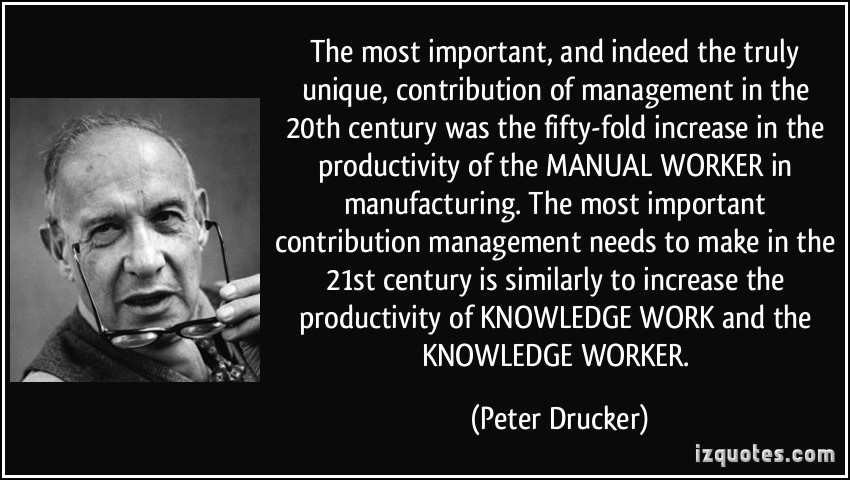One of the biggest mistakes leaders can make is to wait to be told something. You will never affect change by waiting for change to happen to you. When leaders do decided to do something what they ask often is “What do you want me to do?” If you want to grow in your ability to lead others don’t ask “what do you want me to do?” Ask “What can I contribute?”
Executives who do not ask themselves, “What can i contribute?” are not only likely to aim too low, they are likely to aim at the wrong things. Above all, they may define their contribution too narrowly. – Peter Drucker
When looking for what you can contribute you need to ask what does my organization need from me. Drucker sums up nicely what every business every church every non-profit needs from it’s workers.
“Every organization needs performance in three major areas: It needs direct results; building of values and their reaffirmation; and building and developing people for tomorrow. If deprived of performance in any one of these areas, it will decay and die. All three have to be built into the contribution of every executive.”
– Peter Drucker
Direct results are what you can see right away. They give you the momentum to do the other two. Building into and reaffirming values – keeps you from drifting into the nonessential. Building and developing people for tomorrow is the least practiced and very difficult emotionally for most people. To build and train someone who is eventually better than you takes a lot of confidence in Christ. Here is where the gospel can be seen in our work when we find our fulfillment and confidence in Christ we are free to help others be as good or better than us in our work because we do not find our person-hood in what we do but in whose we are.
The by product of this focus on contribution rather than tasks supplies the four basic requirements of effective human-relations:
1. Communication
2. Team Work
3. Self-development
4. Development of others– Peter Drucker
Lastly the by product of focusing on contribution is not simply completed tasks on a to-do sheet but rather the creation of a team that will out work you, out last you and will be a continual monument to your ability to live, serve and work beyond yourself.
“Focusing on contribution turns one of the inherent weaknesses of the executive’s situation – his dependence on other people, his being within the organization – into a source of strength. It creates a team.”

